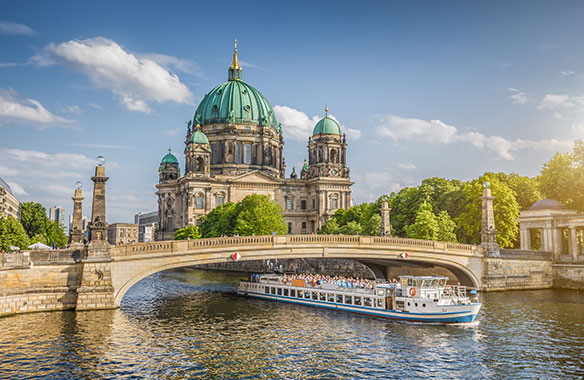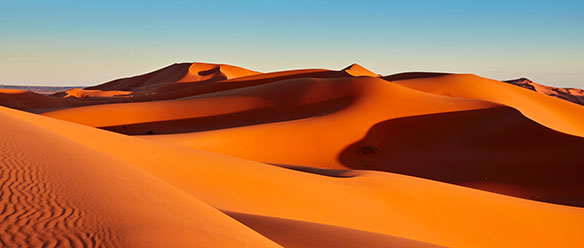
Luxury travel uncovered
ANN RUPPENSTEIN
When it comes to luxury travel, the gloves are off – white gloves, that is.
While luxury often gets associated with white glove service and champagne upon arrival, Jason Merrithew, president of Merit Travel, says these days it’s all about experiences.
“Luxury is becoming more about how people are actually consuming and living in these cultures that they’re visiting. It’s also about the time of the traveller,” he says. “They’re focused a lot more on the actual experience they’re having and the authenticity of that experience, and how true that experience is to the destination that they’re in. Luxury in a lot of ways is the ability to experience your destination, the culture, on your own time, at your own pace and to be able to maximize that type of relationship with the experience, the tour or whatever it is.”
Although luxury travellers still take in the sights and tourist attractions when they visit a destination, they do so on their own time.
“What they’re not going to do is get on and off a bus with a group and wait to do this, or say 15 minutes and we meet back here, they’re not going to do that,” he says. “They’re going to get a private guide, they’re not going to wait in lines, they’re going to spend exactly as long as they need to at this place to get the feel of it, they’re going to have one-to-one conversations with their tour guide, and they’re going to move onto the next thing. And in one day, they’re going to see and experience more of the location than a guided tour or a larger bus tour might.”
So who are these luxury travellers and what do they really want? Here, Merrithew outlines nine points that may make you rethink what you know about luxury travel:
1. The price tag isn’t frivolous
“One of the things that people think about when they view luxury travellers, high-end travellers, is, oh, they spend a lot of money,” he says. “Well, a lot of the time that money is a trade-off for something. People who have the disposable income or the resources to be able to invest $10,000 a week in a vacation, they have lots of money, but what they don’t have a lot of is time. They work a lot more, they might not see their children as much, they might not see their wife or husband as much or whatever it is, and they are taking that week and they are throwing themselves into an experience that they don’t get a lot of.”
2. Travel consultants are driving “luxury” travel
“Travel consultants, I believe, are driving this trend towards luxury as everyone sees it,” he says. “When I say it’s a rise in luxury travel, it really is a shift in mentality from new travellers who are looking at travel experiences and saying what is possible versus what is being shown to me right now. We’re calling it luxury, but it’s not really, it’s time management at its core and it’s understanding that you might not be an expert in something, but I’m going to go ahead and bring an expert on board. Frequently, when you do that, you act as a travel consultant, and we call that as luxury because you’re doing a private one-to-one type of fully customized trip, so our word for that is luxury.”
3. For millennials, time is money and that’s where agents come in
“We’re seeing younger people take to working with travel consultants at a faster rate than any other demographic, and I think that has a lot to do with personalization and expertise. I think what younger travellers are starting to realize is they’re not experts in travel. They’re not experts in what is even possible,” he says. “The type of ‘my time is valuable’ thinking that people knock millennials and younger people for, is actually leading to a resurgence in travel professionals, because you’ve got people looking at their time and saying my time is more valuable than spending 25 hours looking for a hotel deal on an OTA, I’m just going to get so and so to do it. That’s a behaviour that’s driving an increase in travel consultants.”
4. Luxury travellers aren’t afraid to get dirty
“These people are totally happy to put boots on, jump in the mud for a day, hike, go see this and that, be involved with this project, they just might want to come back home to a bed and their own bathroom and a shower, and be able to sit by a fire and chat with their colleagues and friends or whoever they’re travelling with about it,” he says. “You can get dirty and messy and roll around in a river all day and hike and raft and fish or whatever you are going to do, but if you come back to your own bedroom, your own bathroom, an open bar, some good food, a comfortable environment, that can be viewed as a luxury opportunity.”
5. Luxury is really time management
“A theme I keep coming back to with luxury is time because, for the most part, people who are looking to experience luxury travel and generally travellers as a whole, they don’t have a lot of time anymore,” he says. “Everyone has schedules that sort of make their heads spin when they really take a step back and look at them. I think that travel consultants have a duty to when people come to us and say what can I do with my vacation, what can I do with my time off, we have a duty to be able to go to them and say you have so many things out there that you didn’t even know were available to you, and you’re not going to be able to find them by just randomly searching online. The way we look at luxury at Merit is like that. It’s how are you best investing in your travel experience? And a lot of the time that is making sure you are using your time most effectively.”
6. Luxury means different things to different people
“I don’t think anyone is going to call an eight to a room hostel luxury. However, if you are normally a hostel traveller, luxury for you could be a private bathroom. That’s your perspective. That’s what you see,” he says. “It depends on your point of view, what you like to experience, what you don’t like to experience. Luxury is a great beer, luxury is a private bathroom. Luxury is a private jet. Luxury is whatever allows you to feel that this was built for you.”
7. Luxury hotel growth isn’t in North America
“One of the things I’ve realized over the last few years is North America isn’t where the money is going,” he says. “The number of openings for luxury hotels that you are seeing in Asia is just shocking. Like hotels that are opening in cities in China that I’ve never heard of. North America is a very mature market, as far as travelling is concerned. The growth is all in Asia. Latin America as well, but mostly Asia. I think so often in Canada we stay in a bubble, and we sort of say this is what’s going on in Canada. We have the population of California. We’re not setting global trends. We should understand what those trends are.”
8. Luxury can be found in unconventional locations
“What hotels are doing is they’re opening properties in traditionally not luxury destinations because it allows these luxury-oriented travellers to explore a more rugged destination and have that security blanket, that network of I know that brand, I know the experience they provide,’ he says. “If you were looking at hiking in Bhutan, for example, you’re hiking all day, it’s like boots and packs, but there’s a network of six Aman lodges in Bhutan, Aman is a super high-end hotel, it’s a wonderful experience for travellers. And you know that no matter how rough your day is, you’re going to arrive at an Aman hotel, and it allows you to take that step out of your comfort zone.”
9. River cruising is going way beyond Europe
“I think India is going to be really interesting for river cruising. Those are rivers that are historically not cruised in the same way as the European rivers, I think there is – I have no statistics to back this up – but I’ve seen river boats parked in Europe, I could make a total anecdotal argument that there’s a point of saturation for European river cruising, and we are experiencing it right now. I think that’s why you are going to see growth in secondary markets like India, the Amazon and China because it’s going to give people a way to access those countries that’s going to feel a little bit different.”


